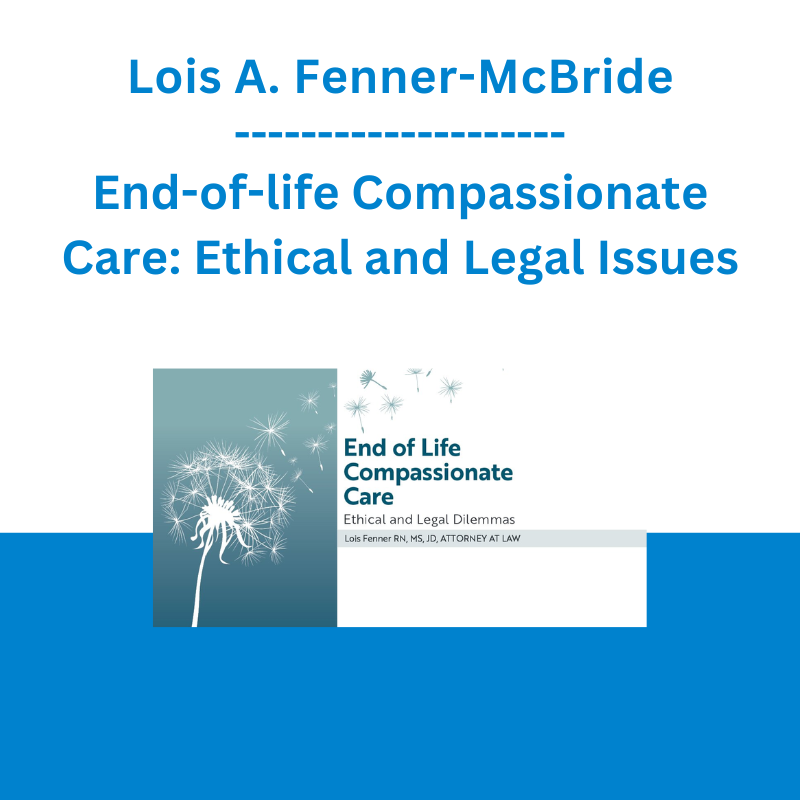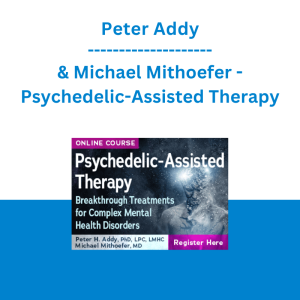*** Proof of Product ***
Exploring the Essential Features of “Lois A Fenner-McBride – End-of-life Compassionate Care: Ethical and Legal Issues”
Speaker: Lois A Fenner-McBride, RN, MS, JD, Attorney at Law
Duration: 2 Hours
Format: Audio and Video
Copyright: Aug 03, 2023
Media Type: Digital Seminar
Description
The goal of end-of-life care is to prevent or minimize suffering while respecting the dying person’s wishes. End-of-life decisions are made in all age groups and the number of individuals aged sixty-five (65) years and older is projected to double by 2060. Health care providers are facing enormous challenges in assisting patients and their families to transition to the final stage of existence. Self-care and education are paramount in developing appropriate coping mechanisms necessary to provide compassionate end-of-life care. This course will provide strategies for implementing safe and effective end-of-life care. Case studies illustrating ethical dilemmas and plausible resolutions are incorporated.
Speaker
Lois A Fenner-McBride, RN, MS, JD, Attorney at Law
Lois A. Fenner McBride, RN, MS, JD, Attorney at Law, is an honor’s graduate of the University of Maryland Graduate School of Nursing, Undergraduate School of Nursing, and University of Maryland Francis King Carey School of Law. She is an attorney admitted to practice before the Supreme Court of the United States, the Federal Bar and the Maryland Bar. Nurse-Attorney Fenner is a compact licensed registered nurse and a certified clinical nurse specialist.
She is a founding member of The American Association of Nurse Attorneys, past president of the Monumental Bar Association, a member of the Women’s Bar Association, and the Trial Lawyer’s Association. Nurse-Attorney Fenner has been recognized by the Alliance of Black Women Attorneys with the Distinguished Women in Law award and has been recognized as a Baltimore Business Journal’s Who’s Who in Law, with a selection as a Super Lawyer twice. Her law practice focuses on medical/healthcare litigation and consulting including medical malpractice, personal injury, accreditation, human resources, wrongful death, risk management, credentialing and professional boards/licensure.
Speaker Disclosures:
Financial: Lois Fenner McBride receives compensation as a Nurse Attorney, HR Consultant, and Educator-Lecturer. She receives a speaking honorarium and recording royalties from PESI, Inc. She has no relevant financial relationships with ineligible organizations.
Non-financial: Lois Fenner McBride is a member of the Maryland State Bar Association, The American Nurse-Attorney Association, and the American Bar Association.
Objectives
- Describe the appropriate uses and requirements for Physician Orders for Life- Sustaining Treatment (POLST).
- Discuss ethical and legal issues related to the decision to withdraw treatment or lifesaving measures.
- Identify how to navigate the health care professional’s responsibilities and obligations while respecting the dying patient’s values and wishes.
- Expand the health care professional’s knowledge of how to cope with the ethical dilemmas thar occur with end-of-life.
Outline
END-OF-LIFE CARE
- Affects all age groups
- 65-year-old population is projected to double by 2060.
- Patients, families, health care providers, and community members all in need of support and education
SUGGESTED CHECKLIST
- DNR forms
- Physician Orders for Life (Physician Orders for Life-Sustaining Treatment (POLST}
- Durable medical power of attorney
- Living will
- Last will and testament
- Revocable living trust
- Beneficiary designation for non-probate assets
- Durable financial power of attorney
- Pet trust
- End-of life housing arrangements
- Instructions for digital assets
- Life insurance
- Funeral or celebration of life instructions. Burial, cremation, organ, and body donation
DEATH WITH DIGNITY/WITHDRAWAL OR WITHHOLDING OF TREATMENT OR LIFE SAVING MEASURES
- Hospice
- Palliative care
- Euthanasia
- Assisted suicide/Aid in dying
- Abuse/neglect
PATIENT VALUES/CULTURAL (psychological, sociological, and physiological)
- Family conflict/decisions not cohesive
- Communication
- Preparation
- Education
HEALTH CARE PROVIDERS’ COPING MECHANISMS
- Peer groups (intervention, support, therapy, and review)
- Ethics panels, boards, or committees
- Licensure/Credentialing Boards
- Institutional regulations, policies, procedures, and protocols
- Professional negligence or malpractice
Target Audience
- Nurse Practitioners
- Advanced Practice Nurses
- Physician Assistants
- Physicians
- Pharmacists
- Nurses
Please see the full list of alternative group-buy courses available here: https://lunacourse.com/shop/










 Peter Addy & Michael Mithoefer - Psychedelic-Assisted Therapy: Breakthrough Treatments for Complex Mental Health Disorders
Peter Addy & Michael Mithoefer - Psychedelic-Assisted Therapy: Breakthrough Treatments for Complex Mental Health Disorders  Fred Haug - Virtual Wholesaling Simplified
Fred Haug - Virtual Wholesaling Simplified